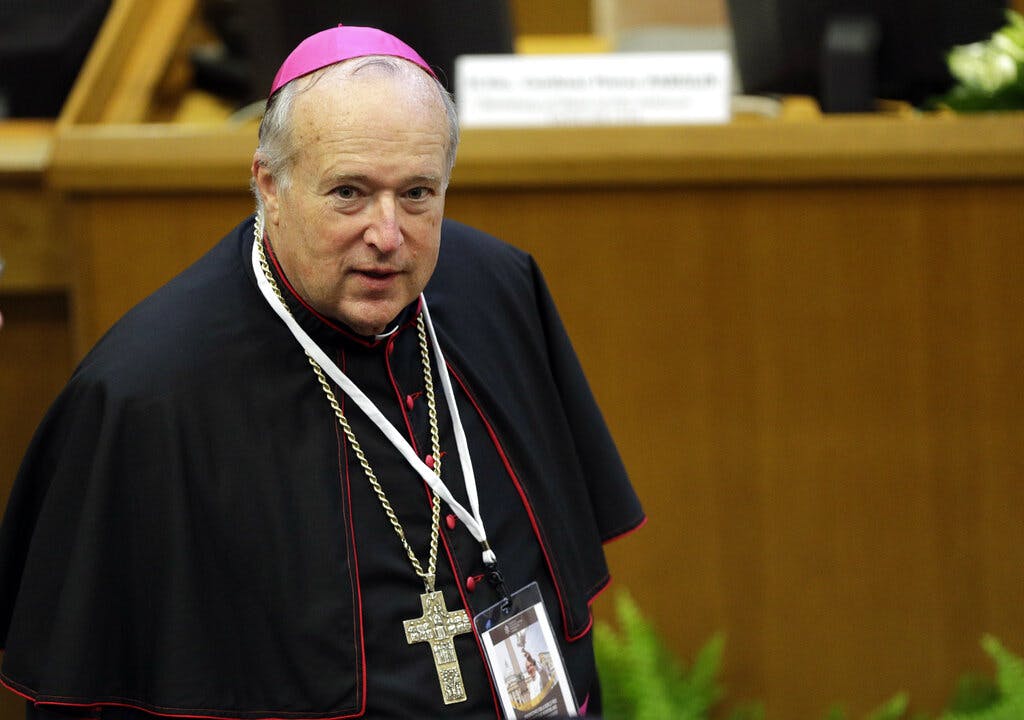Francis’s Slate of New Cardinals Stands as Rebuke to Conservatives in the Church
Vatican-watchers see this batch of cardinals as an effort to ensure a successor who will continue Francis’ policies.

Pope Francis’s recent announcement of a slate of new cardinals stands as a rebuke to conservative elements in the Roman Catholic Church, particularly those in America, and an effort to solidify his legacy as questions are being raised about his health.
The cardinals’ primary responsibility is electing a new pope in the event of the current pontiff’s death or resignation. Vatican-watchers see this batch of cardinals as an effort to ensure a successor who will continue Francis’s policies.
The pope, 85, has been in conspicuously poor health in recent months. In July 2021, he underwent a colon surgery, and in pictures and videos from this year he has often been wheelchair-bound and apparently unable to move unassisted.
While the Vatican asserted the surgery was the routine treatment of a common form of diverticulitis, widely reported speculation in the Italian press claims the surgeons removed two tumors. The Vatican has attributed the pope’s mobility problems to a slow-healing inflammation of the right knee.
Only eight Europeans and a single American made the list of cardinals-designate, marking a shift in the traditionally European-heavy composition of the college of cardinals. Others hailed from a gamut of nations including Brazil, Nigeria, and Mongolia.
The cardinals-designate will receive their red hats at the Vatican during an August consistory, which will be followed by a conference on the pope’s recently proposed bureaucratic reforms.
The announcement arrived against the backdrop of the Catholic hierarchy taking a more active role in American political life than it has in generations.
In January 2021, the United States Conference of Catholic Bishops, the American Church’s advisory body, considered issuing a statement reprimanding President Biden, a Catholic, for pledging to protect legalized abortion and government funding for abortion services.
The statement was spiked by the Vatican, according to a report from the Pillar, a Catholic news outlet. The conference press office did not respond to the Sun’s request for comment.
Despite the papal kibosh on the conference measure, some bishops have taken matters into their own hands within their dioceses.
Archbishop Salvatore Cordileone of San Francisco instructed priests in a May 20 statement to deny communion to the House speaker, Nancy Pelosi, following the Democrat’s outspoken condemnation of the Supreme Court’s leaked draft opinion on Roe v. Wade.
Archbishop Alexander Sample of Portland, Oregon, and Bishop Michael Burbidge of Arlington, Virginia, voiced support for His Excellency’s ban. Other American hierarchs, including Wilton Cardinal Gregory of Washington, D.C., declined to comment on the direction.
A close advisor to the pope, the Reverend Antonio Spadaro, S.J., tweeted Sunday morning that the American designate, Bishop Robert McElroy of San Diego, provided a “strong and clear message for the Church in the United States, in line with Vatican II.”
His Excellency has publicly criticized the practice of denying communion to politicians who support legalized abortion, calling it a “weaponization” of the sacrament.
Bishop McElroy has also been a vocal supporter of liberalizing Catholic guidance about sexual morality, ordaining women deacons, and advancing the pope’s signature environmental concerns.
The “message” of the bishop’s elevation is particularly pointed — San Diego is not a diocese historically graced with a red hat, unlike Baltimore and Philadelphia, whose prelates are not currently members of the college of cardinals.
Progressives have celebrated the current papacy as an era of liberal retranchement in the church. The pontiff, born Jorge Bergoglio, was elevated after Pope Benedict XVI’s resignation in 2013. An Argentine, Francis is the first pope from the New World.
In the years since, Francis has spoken and written extensively on caring for the Earth and on the value of “mercy” and pitfalls of “strictness” regarding the Church’s teachings, particularly on divorce, remarriage, and sexual morality.
In July 2021, the pope issued new guidelines curtailing the use of the traditional Latin form of the Mass, departing from his predecessor’s policy. The British architect of the restrictions, Bishop Arthur Roche, will be made a cardinal at the August consistory.
Some items complicate the progressive narrative. The pope has called abortion “murder” in public remarks; in 2017, he regularized the church’s relations with the traditionalist Society of St. Pius X, whose clergy had been excommunicated since 1988.
The pope’s foreign policy has also been a mixed bag. He has endeavored to thaw relations with the People’s Republic of China, to the detriment of Cardinal Zen Ze-Kiun of Hong Kong. His Eminence was arrested on May 11 for allegedly conspiring against the Communist government.
The pope has called for peace between Ukraine and Russia, offering to mediate between the warring nations and criticizing the patriarch of Moscow, Kirill, for his vocal support of President Putin.

